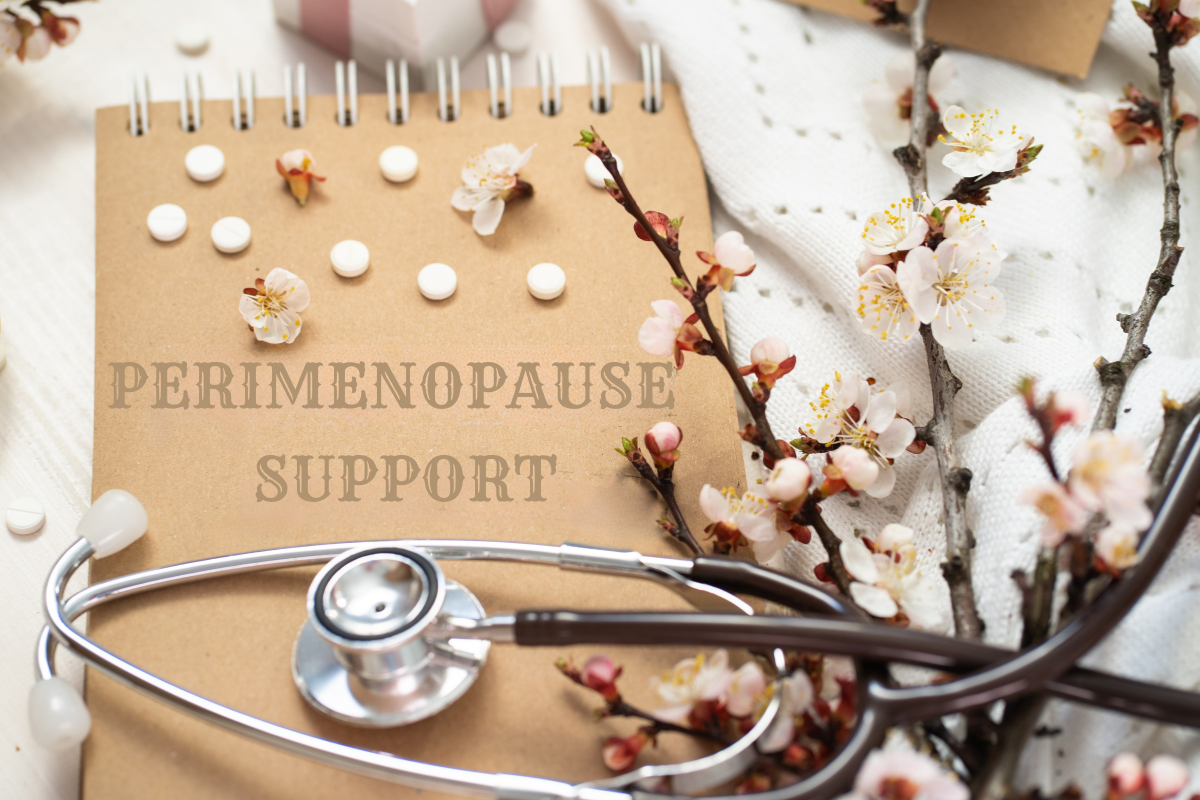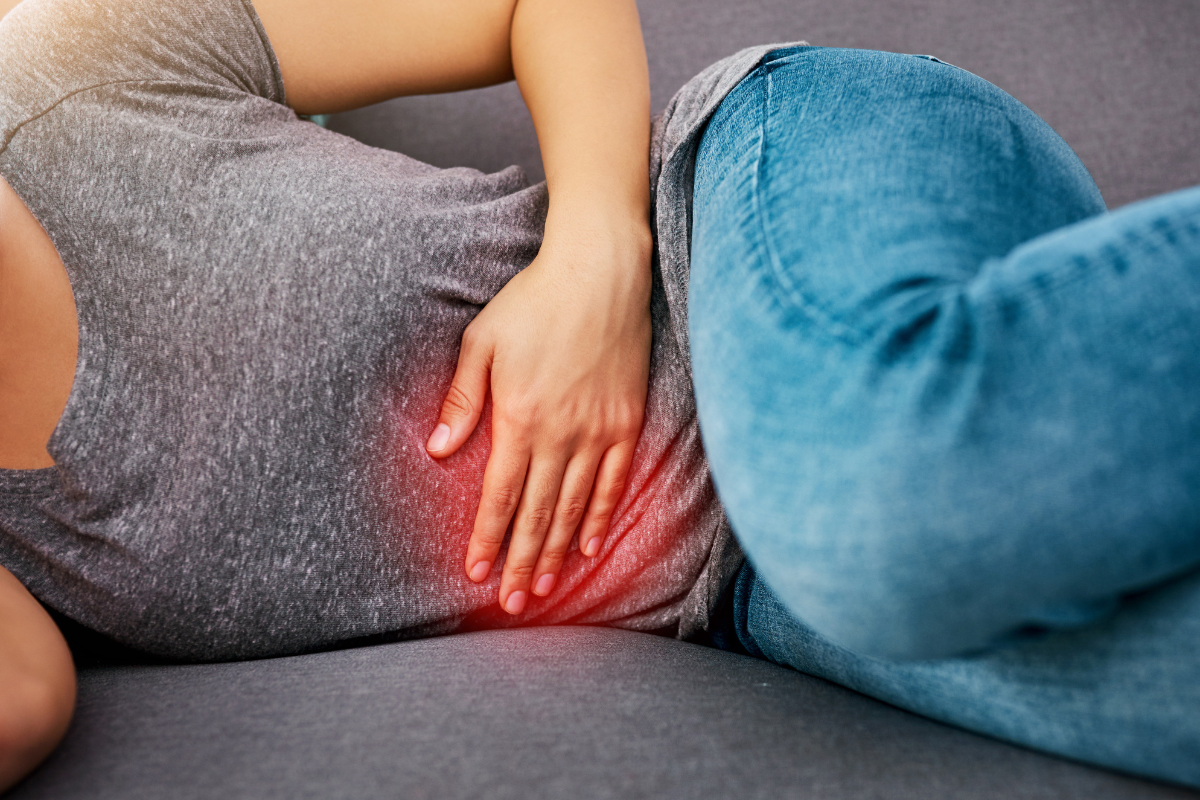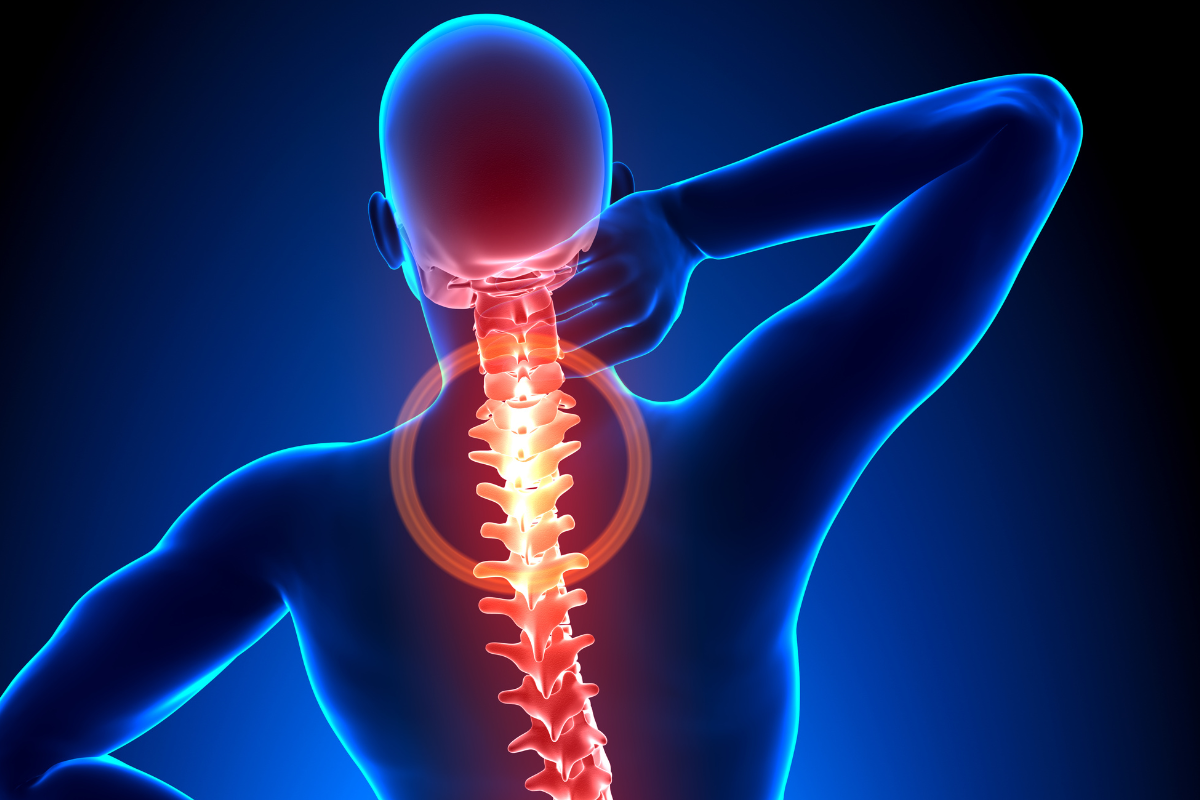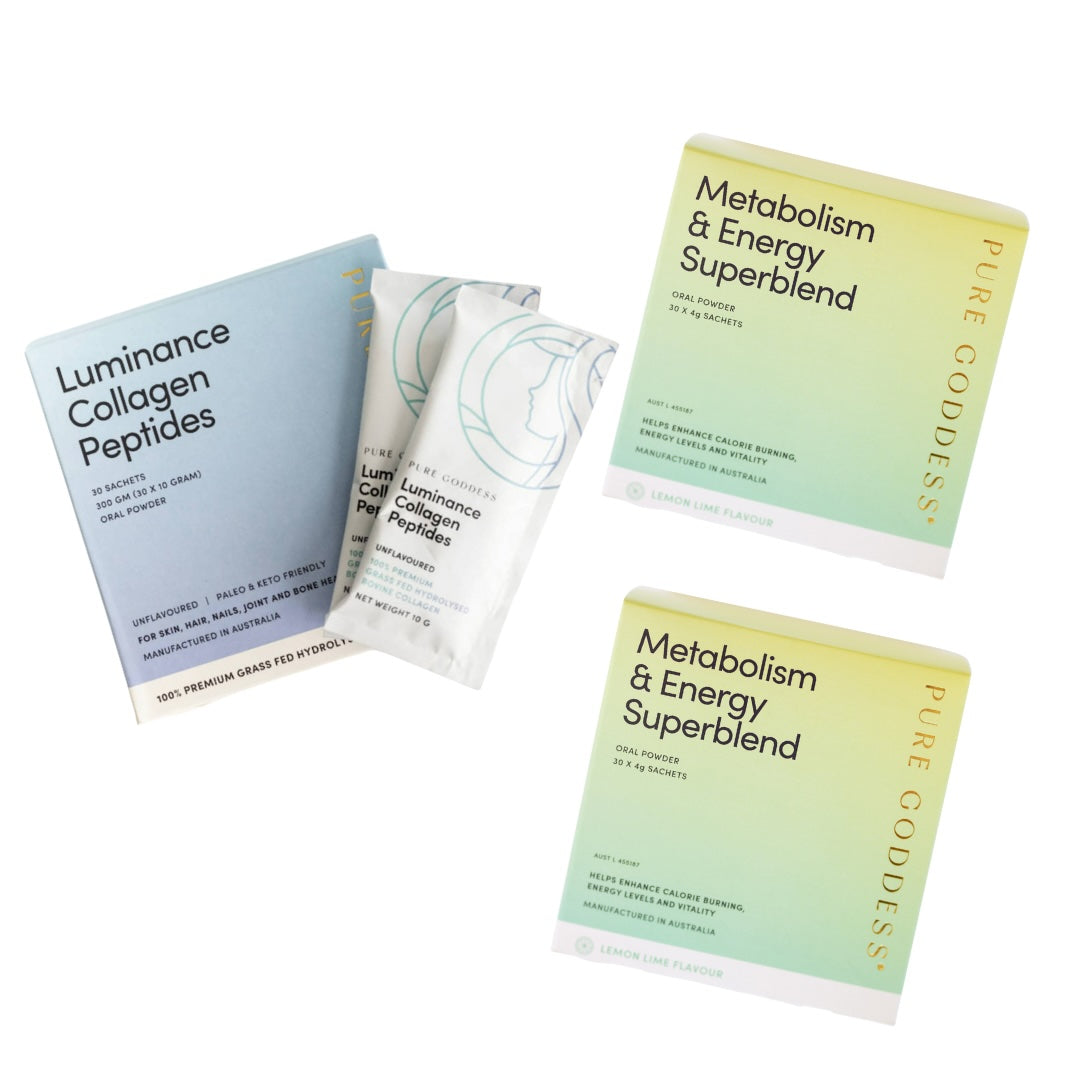
12 Surprising and Science-Backed Ways to Reduce Perimenopause Symptoms
Perimenopause has a way of sneaking up on you. One moment you’re your usual self, and the next, you're wide awake at 3am, wondering why your jeans don’t fit, your memory is foggy, and your patience level is set to “feral cat.”
If you're reading this, chances are you're somewhere on the hormonal rollercoaster that is perimenopause and wondering if there's a brake lever. The good news? You don’t have to white-knuckle your way through it. With the right tools, you can not only reduce symptoms but start feeling like the best version of yourself again.
Let’s dive into 12 lesser known but clinically backed strategies to ease your perimenopause symptoms, covering supplements, lifestyle tweaks, and surprising facts that every midlife woman deserves to know.
1. Track Your Symptoms Like a Scientist.
Before we can fix anything, we need data. Perimenopause can cause a rotating cast of symptoms: irregular cycles, night sweats, brain fog, mood swings, and weight fluctuations. And no, you're not imagining it, these changes are real, and they often come in waves.
Tracking your cycle, symptoms, energy levels, and mood changes helps you spot patterns and uncover triggers. This is particularly helpful if you plan to talk to a GP or hormone specialist about treatment options like HRT, as you’ll come armed with evidence, not just anecdotes.
Pro tip: Use a paper journal designed for perimenopause, or apps like Balance or Clue that let you tag symptoms and hormone changes. You can also download and use our Perimenopause Symptom Checker and take this to your GP.
2. Balance Blood Sugar to Reduce the Chaos.
Blood sugar spikes are one of the most overlooked triggers for worsening perimenopause symptoms. When your blood glucose fluctuates rapidly, it impacts cortisol, insulin, and estrogen, all of which are already volatile in midlife.
Women in perimenopause are also more prone to insulin resistance, which can lead to fatigue, stubborn belly fat, and increased inflammation. A 2022 study in The Journal of Women’s Health confirmed that women who maintain stable glucose levels experience fewer hot flushes and better sleep.
The fix? Start your meals with protein and fibre. Avoid naked carbs (like toast on its own) and opt instead for protein-rich meals paired with veggies and healthy fats. Supplements like glucomannan (a soluble fiber) have also been clinically proven to support glucose control and appetite regulation. Our top selling supplement Metabolism & Energy Superblend contains glucomannan and works to support healthy blood sugar levels and metabolism.
3. Resistance Training is Non-Negotiable.
As estrogen levels drop, so does muscle mass, by as much as 1–2% per year from your late 30s. Less muscle means a slower metabolism, decreased insulin sensitivity, and more difficulty maintaining a healthy weight.
The antidote? Resistance training. Multiple studies, including a 2021 review in Menopause, show that resistance training helps regulate thermoregulation (aka fewer hot flushes), builds lean muscle, supports bone density, and reduces depressive symptoms.
Aim for 2–3 sessions per week, using bodyweight, resistance bands, dumbbells, or machines. Even light weights can make a significant difference over time.
4. HRT Isn’t Taboo - It’s Personalised Medicine.
Despite lingering stigma, hormone replacement therapy (HRT) is now widely recommended for symptom relief in healthy women under age 60 or within 10 years of menopause onset. According to a 2023 review in The Lancet, body-identical HRT significantly improves symptoms like insomnia, anxiety, vaginal dryness, and night sweats, with far fewer risks than previously thought.
There are various types of HRT, including transdermal estrogen, oral estrogen, and progesterone (for women with a uterus). Tailoring the dose and method with a menopause-informed doctor is key.
If HRT isn’t right for you, plant-based alternatives like black cohosh, red clover, and pycnogenol have shown modest improvements in clinical trials, though results vary.
5. Magnesium: The Unsung Menopause Mineral.
Magnesium is involved in over 300 biochemical reactions and is particularly important during perimenopause. It helps with sleep, muscle relaxation, blood pressure, mood regulation, and bone health. Research published in Biological Trace Element Research found that magnesium supplementation improved sleep and reduced anxiety in perimenopausal women.
Deficiency is common in women over 40 due to stress, poor dietary intake, and medication use. Look for magnesium glycinate or citrate (both well absorbed) and aim for 300–400mg per day, ideally at night for improved sleep.
Bonus benefit? It can also ease constipation, another common (and rarely discussed) symptom of midlife.
6. Gut Health and Hormones Are Deeply Linked.
Estrogen and your gut microbiome are in constant communication. A diverse gut microbiome helps metabolize estrogen safely through the liver and bowel. If your gut health is off, estrogen can become “recycled” and recirculate in its more toxic form, contributing to symptoms like bloating, breast tenderness, and PMS-like irritability.
To support your microbiome, add fermented foods (like kimchi, kefir, sauerkraut), prebiotic fibers (such as inulin or glucomannan), and probiotic supplements. One 2020 review in Nutrients showed that certain probiotic strains, including Lactobacillus and Bifidobacterium, may reduce inflammation and improve vaginal and digestive health in midlife women.
7. Adaptogens to the Rescue.
Adaptogenic herbs are finally getting the credit they deserve in midlife care. These plant extracts help your body “adapt” to stress, balancing cortisol and supporting hormone production.
Three worth exploring:
-
Ashwagandha: reduces anxiety, improves sleep quality, and balances cortisol
-
Rhodiola Rosea: boosts energy and reduces fatigue
-
Maca root: supports libido, energy, and mood
A 2021 double-blind study published in The Journal of Ethnopharmacology found that ashwagandha reduced anxiety and improved sleep within 6 weeks. Choose high-quality, standardised extracts, and always consult with your health provider if you're taking medication.
8. Hydration and Electrolytes Matter More Than You Think.
Estrogen plays a role in fluid balance, and its decline increases the likelihood of dehydration. Dehydration, in turn, can intensify headaches, fatigue, dry skin, and brain fog. Many women don’t realise that water needs increase in perimenopause.
It’s not just about drinking more; it's about absorbing it better. That’s where electrolytes come in. Consider adding electrolyte powders with sodium, potassium, and magnesium especially if you're prone to night sweats or exercise regularly.
Aim for 2–3 litres of fluid daily through water, herbal teas, and high-water-content foods (like cucumbers and berries).
9. Collagen Does More Than Plump Skin.
Collagen production declines by about 1% per year after age 25, and even more sharply during perimenopause. The result? Thinner skin, joint aches, weaker nails, and slower healing.
Supplementing with 10g of Pure Goddess Luminance Collagen Peptides - hydrolysed bovine collagen has been shown in clinical trials to improve skin elasticity, reduce joint pain, and even support bone mineral density. A 2023 study in Dermato-Endocrinology found significant improvements in skin hydration and elasticity in postmenopausal women taking daily collagen.
For best results, look for type I and III collagen, ideally from grass-fed sources, and combine it with vitamin C, which is essential for collagen synthesis.
10. Detox the Right Way.
Hormonal balance depends on your liver’s ability to detoxify excess estrogen and other metabolites. But in a world full of xenoestrogens (from plastics, fragrances, pesticides, etc.), our livers are doing overtime.
You can support your detox pathways gently by increasing intake of cruciferous vegetables (like broccoli, cabbage, and cauliflower), drinking dandelion root tea, and considering supplements like DIM (diindolylmethane), which helps convert estrogen into safer metabolites.
This isn’t about extreme cleanses, it’s about reducing the toxic burden so your hormones can find their rhythm again. Check out our Pure Goddess 7 Day Anti-Inflammatory Cleanse Ebook - This is the ultimate guide to reducing inflammation, boosting digestion, and resetting your body with nourishing, seasonal foods. Designed for anyone looking to improve their health naturally.
11. Rethink Your Workout Routine.
Cardio is not bad, but overdoing high-intensity workouts can backfire in perimenopause. Excess cortisol from long-duration workouts (like daily 10k runs or hour-long HIIT) can worsen symptoms like fatigue, anxiety, and belly fat.
Research from Menopause Review suggests that a mix of moderate cardio, resistance training, and low-impact movement like yoga or Pilates is ideal. Even short bursts of movement (20-minute sessions) improve energy, cognition, and thermoregulation without burning you out.
12. Connection is a Hormonal Multivitamin.
One of the most overlooked tools in your midlife toolkit? Human connection. Social support increases oxytocin, a powerful hormone that counters stress and regulates mood and even inflammation.
Studies consistently show that women with strong social ties report fewer menopause symptoms and better quality of life. Whether it’s a chatty walk with a friend, a women's circle, or a therapist, it’s medicine. And you deserve that kind of support.
The Bottom Line: You’re Not Broken, You’re in Transition
Perimenopause is not a decline, it’s a recalibration. Yes, it comes with chaos, but it also opens the door to deeper self-awareness, strength, and wisdom. With the right strategies, support, and maybe a few well-chosen supplements, you can feel more energised, more confident, and more in control than ever before.
Because the truth is, midlife isn't the end, it's just the beginning.








Leave a comment
This site is protected by hCaptcha and the hCaptcha Privacy Policy and Terms of Service apply.